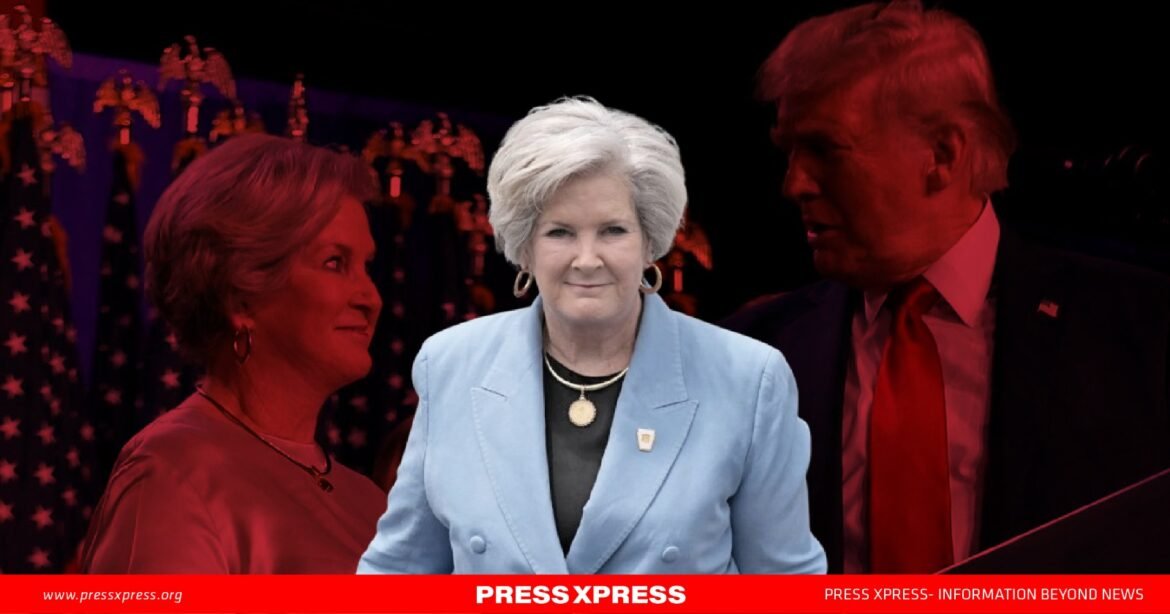In a groundbreaking decision, President-elect Donald Trump has appointed Susie Wiles as Chief of Staff, making her the first woman to hold this pivotal role. Wiles’ appointment not only breaks a historic barrier but also signals Trump’s commitment to continuity and seasoned leadership in his administration. With her extensive experience and deep understanding of Trump’s strategy, Wiles is poised to bring stability and precision to the White House at a critical juncture in U.S. politics.
Shattering a 245-Year-Old Glass Ceiling
The Chief of Staff position, traditionally dominated by men, is one of the most powerful in the White House, second only to the presidency. This role oversees the president’s agenda, coordinates policy, and manages White House staff. Wiles’ appointment as the first female Chief of Staff reflects Trump’s willingness to challenge established norms by placing a highly qualified woman in this influential office.
Women have made strides in U.S. government roles, but the Chief of Staff position had remained an elusive glass ceiling until now. Wiles now joins the ranks of influential women in American politics, setting a new standard for gender equality in government.
Who is Susie Wiles?
Wiles is far from a symbolic choice. A veteran strategist, she has been instrumental in several high-stakes campaigns. Based in Florida, Wiles led Trump’s successful Florida campaigns in 2016 and 2020, as well as Ron DeSantis’s 2018 gubernatorial race. Known for her organizational skills and strategic insights, Wiles has earned Trump’s trust as a key player in his inner circle.

Wiles comes from a distinguished background. She is the daughter of Pat Summerall, the renowned NFL player and sportscaster, whose legacy of excellence has influenced her own disciplined approach to politics. In Trump’s campaigns, Wiles collaborated with strategist Chris LaCivita to orchestrate one of Trump’s most disciplined campaigns to date. Her prior achievements include leading Rick Scott’s 2010 gubernatorial campaign and playing a role in Jon Huntsman’s 2012 presidential bid.
Wiles’ political journey began in Washington, where she worked for Representative Jack Kemp in the 1970s. She later joined Ronald Reagan’s campaign and served as a scheduler in his White House, gaining valuable federal experience. Her relocation to Florida opened new opportunities; she provided counsel to two Jacksonville mayors and worked closely with Representative Tillie Fowler, further establishing her political clout. Her role in helping Rick Scott win Florida’s governorship in 2010 cemented her reputation as a powerful force in state politics.
Known for her low-profile approach, Wiles has maintained discretion throughout her career, often avoiding the formal campaign manager title due to Trump’s history of management changes. Even during Trump’s recent victory celebration, she declined to make a public appearance, choosing instead to stay behind the scenes—a hallmark of her understated but effective style.
Why Susie Wiles?
Trump’s choice of Wiles is not only a nod to gender equality but also a signal of strategic continuity. Wiles’ deep understanding of Trump’s goals, coupled with her expertise in navigating complex political landscapes, positions her to effectively implement Trump’s vision for his second term. With her at the helm, Trump’s administration can expect a disciplined and efficient approach to governance.
Wiles’ appointment aligns with Trump’s broader goal of maintaining a loyal, capable team to help address America’s challenges. Her presence could strengthen Trump’s support among women voters who see her appointment as overdue recognition of women’s capabilities. Trump’s decision reflects his long-standing principle of valuing competence, loyalty, and effectiveness, regardless of gender.
Impact and Implications for Trump’s Second Term
Susie Wiles’ appointment as Trump’s Chief of Staff marks a strategic and historic moment in U.S. politics. Beyond shattering a gender barrier, her role signals Trump’s commitment to continuity, loyalty, and effective governance. Wiles, a seasoned political strategist, has been instrumental in mobilizing Trump’s base, especially in battleground states like Florida, and her leadership could help solidify his support among core followers while appealing to a broader demographic, including women inspired by her appointment.
Her presence in the White House is expected to be a stabilizing factor, reassuring investors and policymakers of Trump’s dedication to economic growth, tax reform, and deregulation. With her direct access to Trump, Wiles will play a pivotal role in streamlining decisions and ensuring order, which may positively influence market and economic perceptions of the administration’s direction.
Wiles’ appointment reinforces Trump’s legacy of challenging norms and valuing skill and loyalty above all else. As the first woman to hold this influential role, she sets a precedent for future female leaders, underscoring Trump’s commitment to a diverse and competent team. This bold move not only opens new doors for women in politics but also exemplifies Trump’s focus on results-driven leadership, promising an inclusive and strategically grounded administration.
Lastly, with Susie Wiles as his Chief of Staff, America is set to witness a new chapter of leadership that combines experience, innovation, and a commitment to getting things done.


